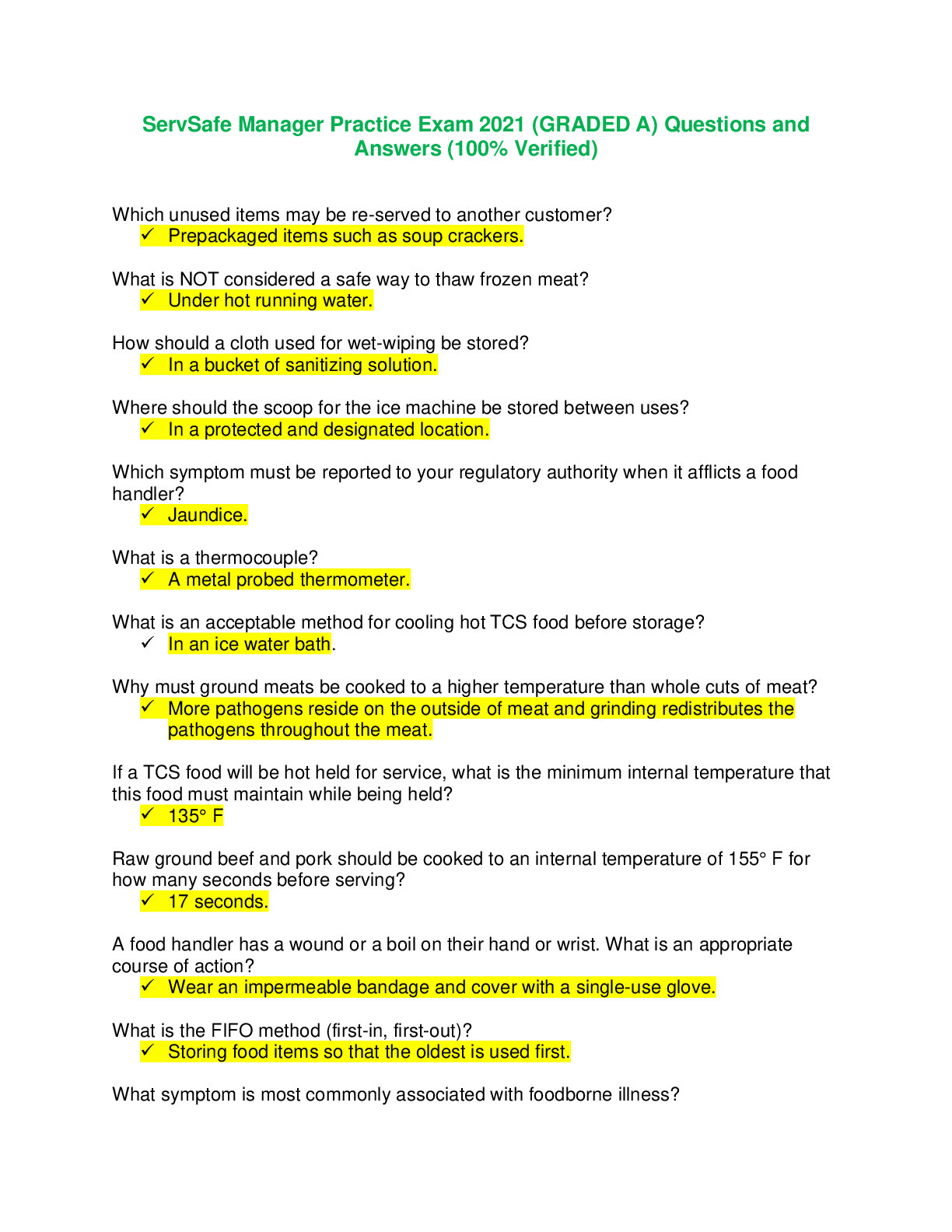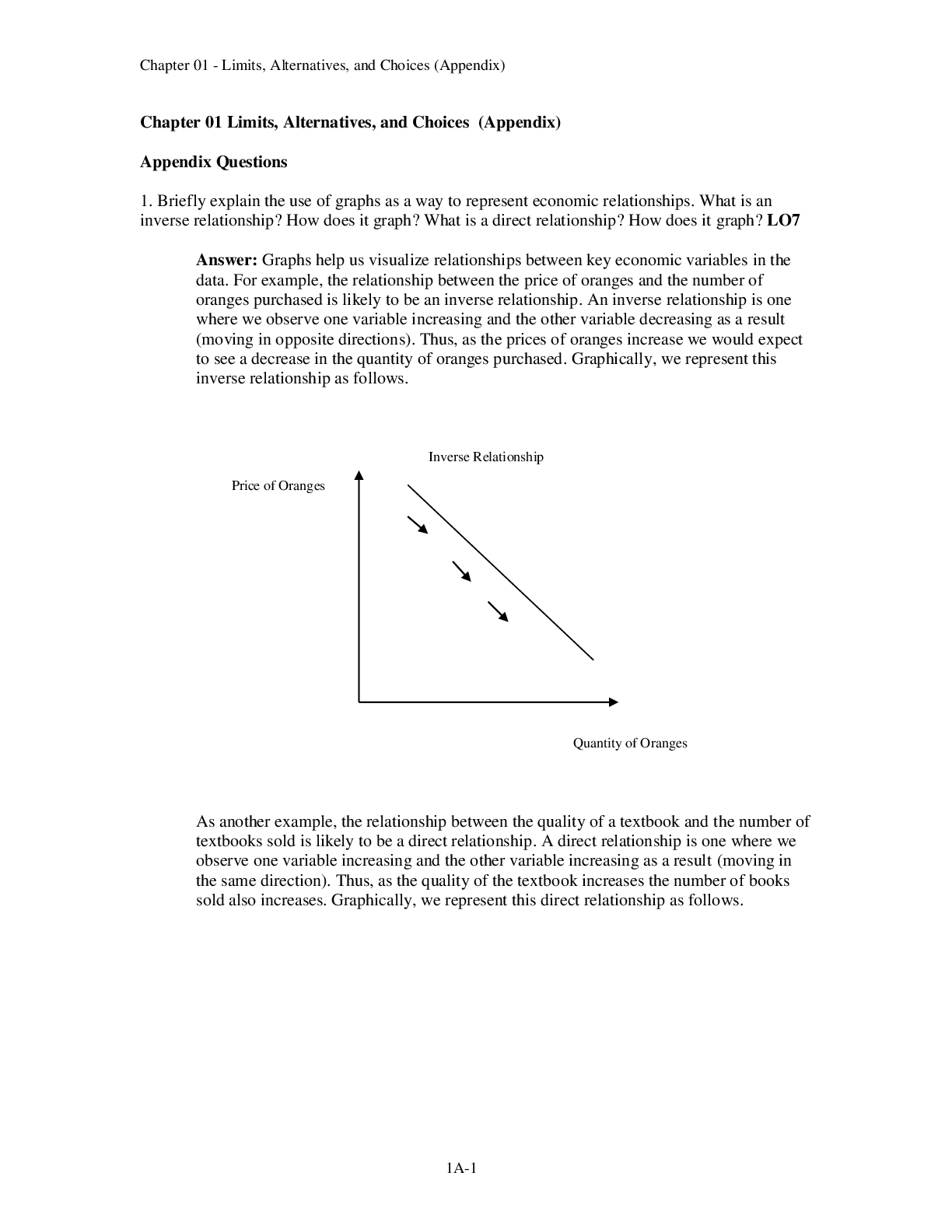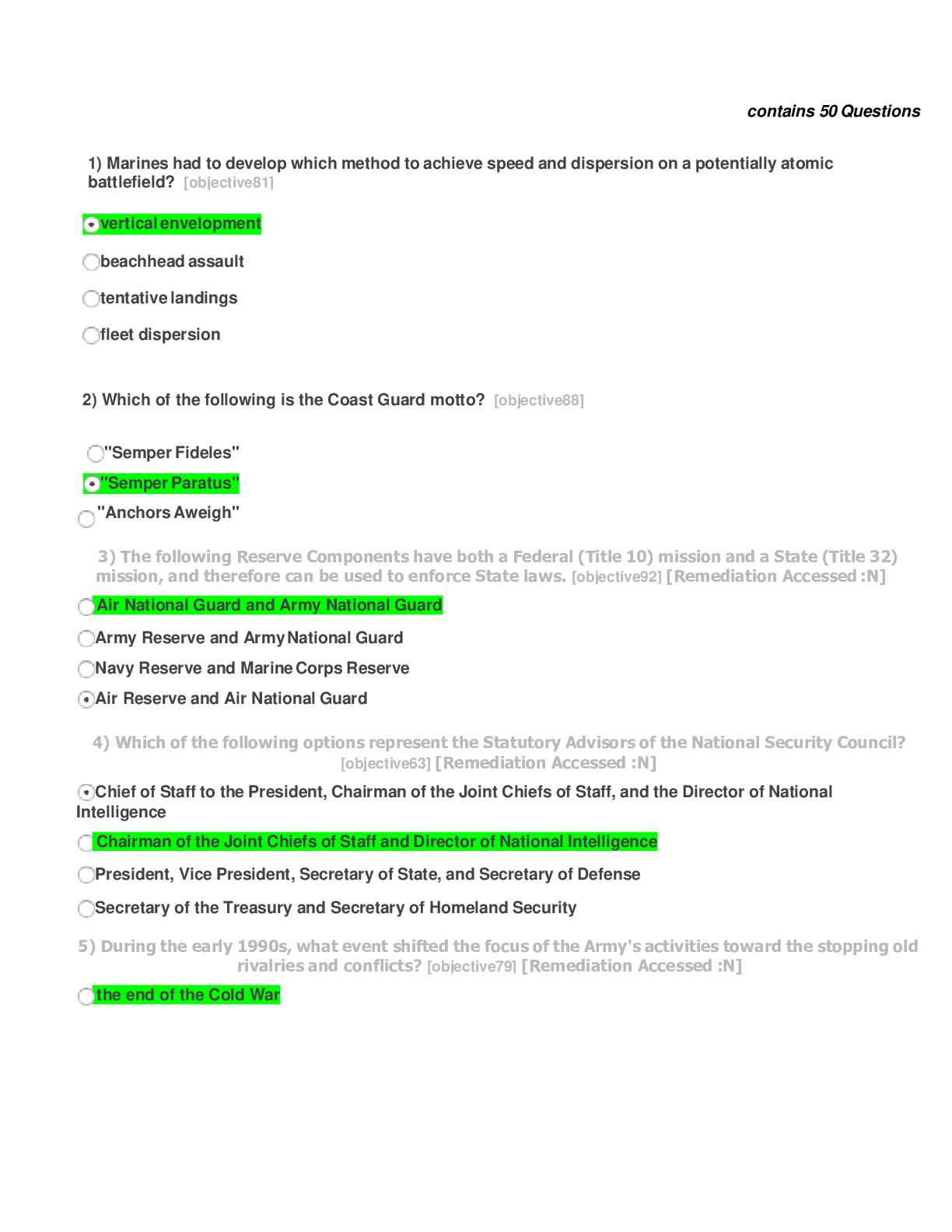Micro Biology > EXAM > BIOS-242 Week 5 Quiz – Questions Answers (GRADED A) Solutions | Already Graded A. (All)
BIOS-242 Week 5 Quiz – Questions Answers (GRADED A) Solutions | Already Graded A.
Document Content and Description Below
BIOS 242 WEEK 5 QUIZ (TCO 9) Innate immunity and its preventative physiology can be seen in all but which of the choices below? Tears Mucus membrane Sweat glands Kerati... n of fingernails Sebum Chapter 15, The Body’s First Line of Defense section (TCO 9) The complement system is involved in all the following except triggering of fever chemotaxis production of antibodies triggering of inflammatory reactions opsonization Chapter 15 (TCO 9) A response to inflammatory mediators could be . coughing forcible expulsion cold feet cold digits dilation of blood vessels Chapter 15, Inflammation section (TCO 9) Stem cells are undifferentiated. This means that . they will form only new neuron cells they may form any type of a variety of tissues they are incapable of growth they will kill pathogens None of the above Chapter 15 (TCO 9) A wandering macrophage may leave the bloodstream. True False True, but only when a low number of heme molecules are present False, but only when high WBCs are present. False, but only when high RBCs are present. Chapter 15, Inflammation section (TCO 9) A human’s cellular ability to recognize and then defend against microbial invaders and their products is called . adaptive immunity prevention adaptive radiation molecular transference None of the above Chapter 16, Overview of Adaptive Immunity section Question 7 2 / 2 pts (TCO 9) The humoral immune response is attributed to the action of . neutrophils T lymphocytes B lymphocytes monocytes macrophages Chapter 16, The Tissues and Organs of the Lymphatic System section (TCO 9) The most prevalent type of antibody in the blood is . IgD IgA IgM IgE IgG Chapter 16 (TCO 9) Which of the following are functions of IgG? Antibody-dependent cellular toxicity Toxin neutralization Can help complement proteins Crossing the placenta to help protect the fetus All of the above Chapter 16, B Lymphocytes (B cells) and Antibodies section (TCO 9) Cytotoxic T cells . are also known as natural killer lymphocytes are involved in killing cancer cells are the target cells of HIV All of the above None of the above Chapter 16, T Lymphocytes (T Cells) section (TCO 9) List and describe the structure of each of the five classes of antibody molecules. Which one is produced first in the disease process? Which is the most prevalent? Your Answer: IgM comes first and then convert I gG is the most come and long lasting IgE release histamen IgD remains attached to b cells IgA body secrections Chapter 16, B Lymphocytes (B cells) and Antibodies section IgM is a pentamer of five subunits. IgG is a monomer, the most common and longest lasting. IgA is associated with secretions; secretory IgA is a dimer. Monomeric IgA is also found circulating in the bloodstream. IgE is a monomer and associated with allergic reactions and helminth infections. IgD is a monomer and often membrane bound. Its function is not known. IgM is produced first during the infection response. IgG is the most prevalent antibody. Quiz Score: 30 out of 30 [Show More]
Last updated: 2 years ago
Preview 1 out of 8 pages

Buy this document to get the full access instantly
Instant Download Access after purchase
Buy NowInstant download
We Accept:

Reviews( 0 )
$12.50
Can't find what you want? Try our AI powered Search
Document information
Connected school, study & course
About the document
Uploaded On
Oct 07, 2021
Number of pages
8
Written in
Additional information
This document has been written for:
Uploaded
Oct 07, 2021
Downloads
0
Views
77
 Questions and Answers GRADED A STRAIGHTLINE.png)

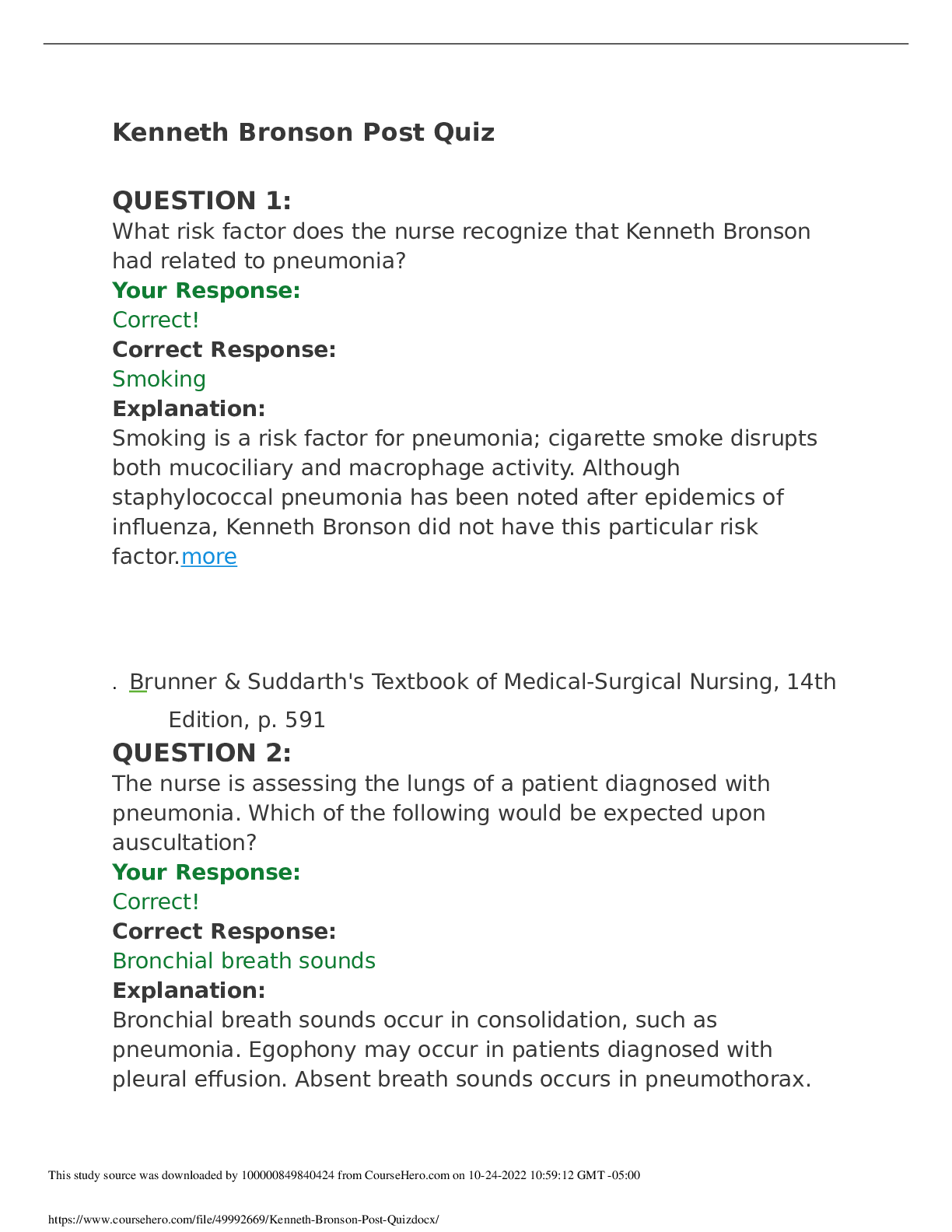

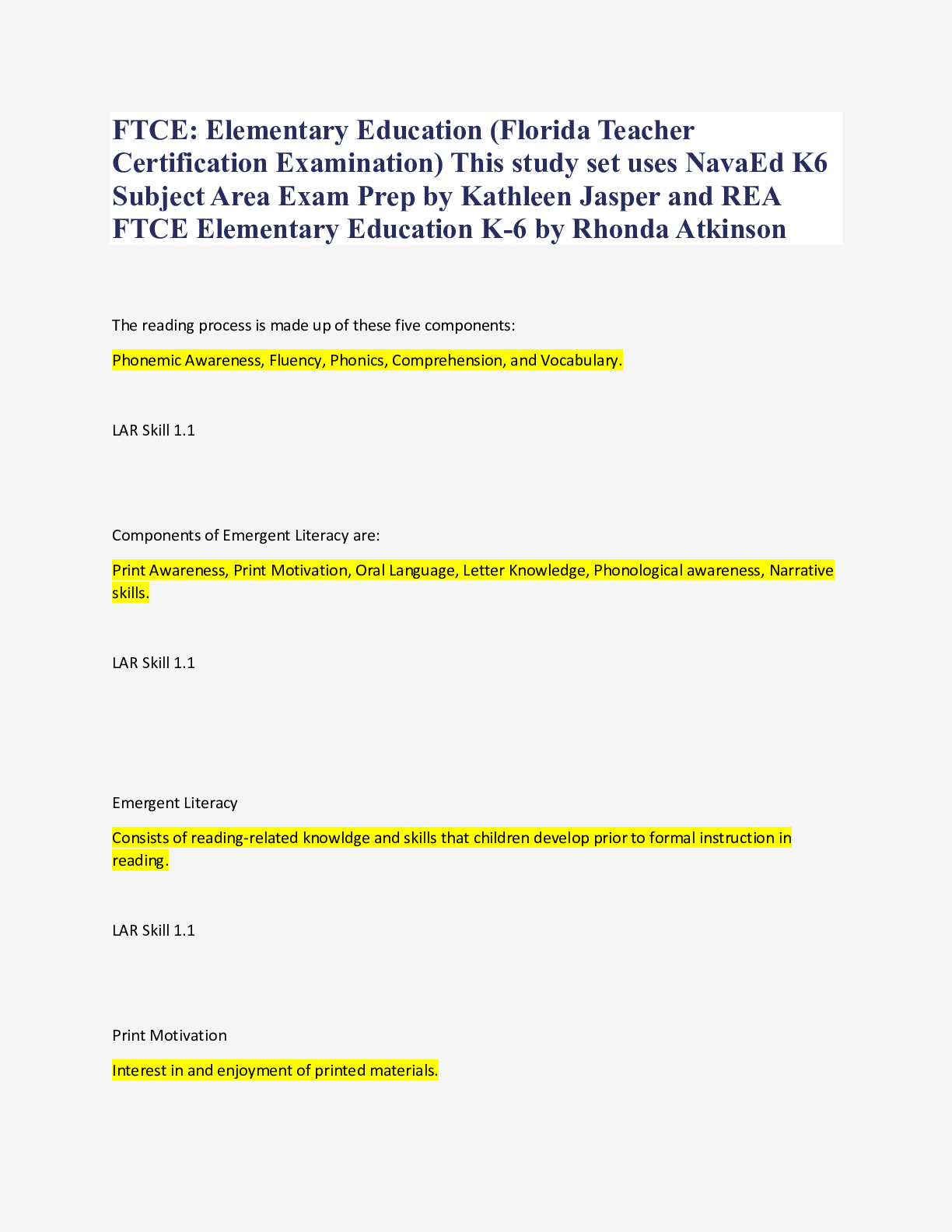

 Questions and Answers 100% VERIFIED.png)
 Questions and Answers 100% correct Solutions.png)



